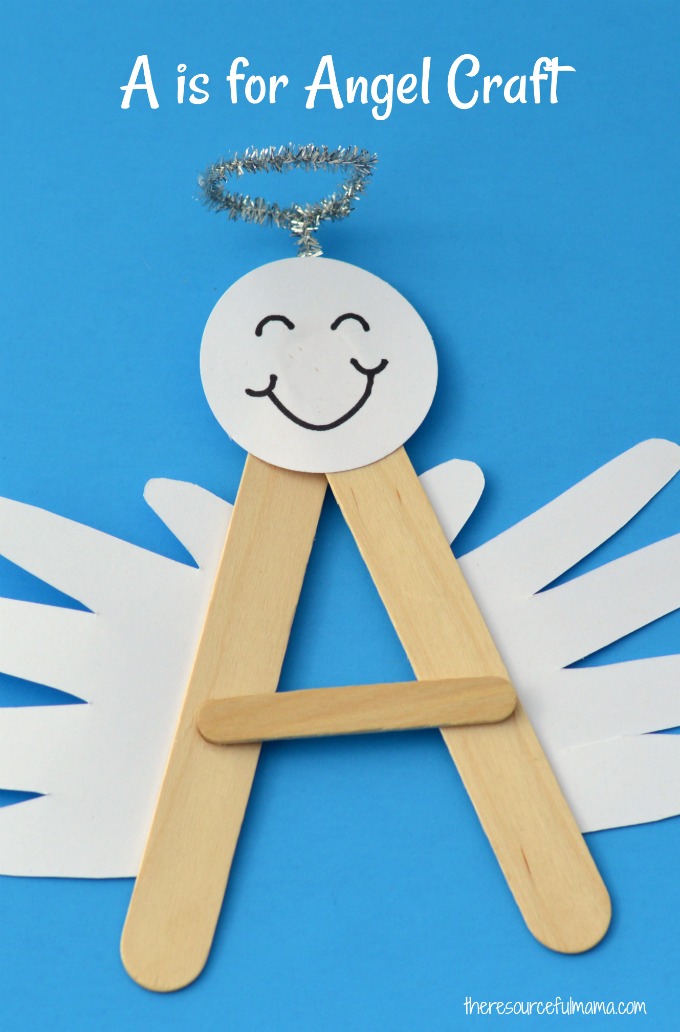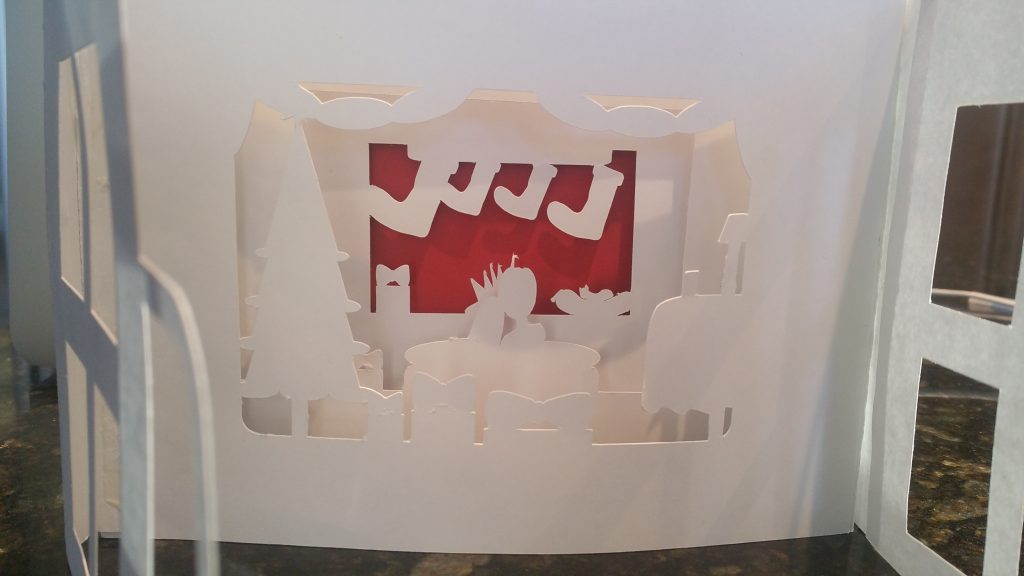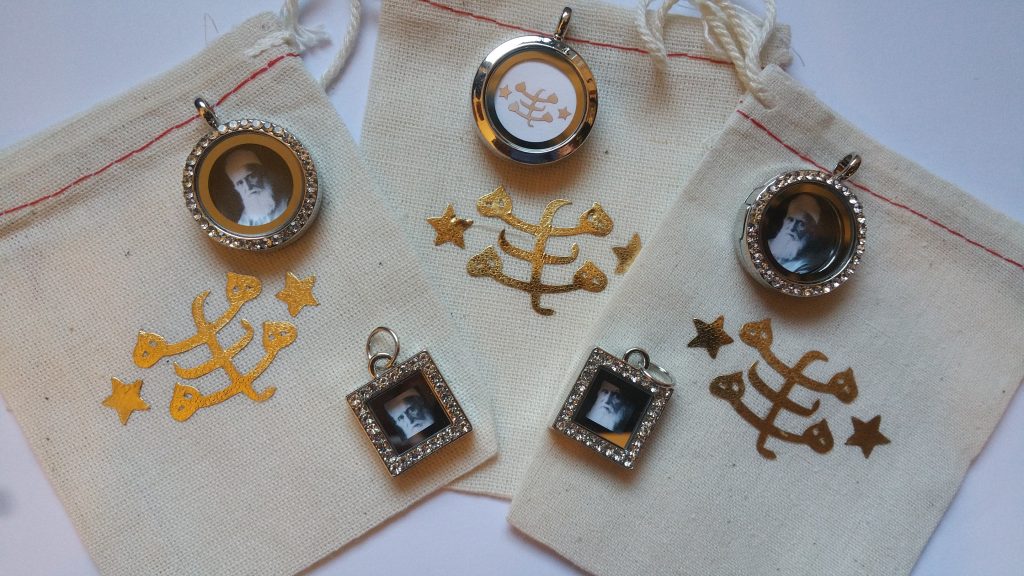
Introducing The Principal Theme
Welcome to Lesson 4 Grade 4.
This lesson tells of Baha’u’llah’s imprisonment in the Síyáh-Chál, described in the historical episode, and represents one of the most intense periods of His suffering. When we learn of Baha’u’llah’s sorrows and adversities we will see that no matter how much the enemies of Baha’u’llah tried to eradicate Him, Baha’u’llah always emerged triumphant.
—out of the gloom of the Black Pit, rose the Sun of Truth.
In the last lesson, we discussed the importance of the Conference of Badasht:
On that occasion, the followers of the Báb decided it was time to set aside outdated beliefs and follow His teachings. But those who ruled the country, especially the religious leaders, were afraid of losing their power over the people. If the masses accepted God’s new teachings, how would they control their thoughts?
Something had to be done! And thus began the systematic persecution of the followers of the Báb.
Do you remember how the Báb and so many of His disciples suffered after the Conference of Badasht?
What happened finally?
He willingly gave up His life so that He could purify hearts and make them ready to receive Bahá’u’lláh’s Revelation.”
Do you remember the events surrounding the martyrdom of the Báb?
Now, in this lesson, we will learn what occurred in the years immediately after The Báb’s martyrdom. The persecution and massacre of His followers eventually became so fierce that no Bábí was safe. Even Bahá’u’lláh, Who was loved and respected by everyone, was caught up in the storm of violence. What you will hear will bring sadness to your hearts.
Do you know what a ‘dungeon’ is?
Bahá’u’lláh was taken to a dark and gloomy dungeon called the Síyáh-Chál, which means the ‘black pit’, where He was put under chains. But we have seen that, despite suffering and opposition, the Manifestations of God succeed in bringing light into the world. You will be filled with joy, then, when you hear how, while imprisoned in the Black Pit, Bahá’u’lláh received the first stirrings of God’s Revelation in His soul. What is more, today you will start to memorize a passage in which Bahá’u’lláh tells us Himself what occurred at that historic moment— how He heard words all around Him assuring Him that He would be made victorious and that God would raise up people who would aid Him in victory.
Of course, in the many stories we heard earlier about people around the world who celebrated the Birth of Bahá’u’lláh, we saw the fulfillment of these words. Communities across the globe, including our own, are teeming with men and women who are trying to live according to His teachings, and we are glad to be counted among them. As the number of those illumined by His teachings increases, this world will gradually change: suffering will give way to prosperity; ignorance will retreat before knowledge; oppression will surrender to justice. All the darkness of despair and hopelessness we see around us today will be chased away by the light of His teachings, just as out of the darkness and gloom of the Black Pit, the Síyáh-Chál rose the Sun of Truth.
- What is the purpose of Baha’u’llah’s Mission?
- Who do His teachings need to reach?
- What is the duty of every one of His followers?
- What are we doing when we give others the news of Baha’u’llah’s coming?
- What are we doing when we share with others the Word of God brought to us by Baha’u’llah?
- What happens to our words in the act of teaching?
- What is needed in addition to words, if we are to become effective teachers?
- What does Baha’u’llah assure us we will receive when we are teaching His Cause?

This is the last lesson for these 3 prayers. How far along in memorization did you get? Remember, you can use the aid to memorize the prayers for this Set 1 Prayers.
Prayer 1

Prayer 2

Prayer 3


One night, in a dream, these exalted words were heard on every side: ‘Verily, We shall render Thee victorious by Thyself and by Thy Pen. Grieve Thou not for that which hath befallen Thee, neither be Thou afraid, for Thou art in safety. Erelong will God raise up the treasures of the earth—men who will aid Thee through Thyself and through Thy Name, wherewith God hath revived the hearts of such as have recognized Him
Epistle to the Son of the Wolf
Meaning Of Words
Want to know the meaning of the words in the quote? look them up and record them here. Keep it safe in your notebook!
Meaning of words
Not sure of some of the meanings of the words in the quote? look them uo and record them in this PDF
SEND A POSTCARD

Send it to a friend, or neighbor, use email, snail mail, or hand-deliver it!


The historical episode in this lesson revolves around Bahá’u’lláh’s imprisonment in the Síyáh-Chál. This episode in Bahá’u’lláh’s life is divided into 3 stories:
- The pitiful attempt on the life of the king and Bahá’u’lláh’s arrival at the Síyáh-Chál,
- The conditions of that dreadful place and the consequences of His arrest for His dear family,
- The stirring anthem of the Bábís and the birth of Bahá’u’lláh’s Revelation.
Story 1
The summer of 1852 brought intense suffering to the followers of the Báb. The Báb Himself had been martyred two years before, and many of His most outstanding disciples had already given their lives for their Faith. A small group of Bábís were so saddened by the martyrdom of their beloved Báb that they decided to take revenge. Although Bahá’u’lláh told them to let go of their foolish ideas, they would not listen to Him and devised a plot against the life of the new king who now sat on the throne, Náṣiri’d-Dín Shah. Their pitiful attempt failed, but it aroused such anger in the king that he ordered yet another massacre of the followers of the Báb. The cruel acts that were committed during those months against the Bábís are so shocking that to describe them would bring too much sadness to your heart. You will read about them later in your lives and will wonder how any government could have promoted such savagery among its people. For now what you need to know is that this wave of persecutions brought great suffering to Bahá’u’lláh Who, as you saw in our earlier classes, had enjoyed relative freedom until then because of His position in society. An order was issued for His immediate arrest. On the day the king gave the order, Bahá’u’lláh was staying in a village some kilometers away from the city of Ṭihrán. The news that He was soon to be imprisoned did not disturb Him in the slightest, and He faced His arrest with His usual dignity. The prison chosen for Him was called the Síyáh-Chál—“the Black Pit”. The Síyáh-Chál was originally a reservoir of water for a public bath in Ṭihrán and was, at the time, used as an underground dungeon in which criminals of the worst type were held.
On His way to the Síyáh-Chál, Bahá’u’lláh was forced to walk barefooted and bareheaded under the burning rays of the midsummer sun. The crowd that stood along the road treated Him with extreme rudeness. Yet His face reflected His inner calm and His heart was filled with love even for those who wished Him harm. As He was nearing the Síyáh-Chál, an old woman came out of the crowd with a stone in her hand. She had been so convinced that Bahá’u’lláh was a wrongdoer that she was totally unaware of the nobility and love shown forth by this extraordinary Prisoner. Her whole body shook with rage as she stepped forward and raised her hand to hurl the stone at Him. “Give me a chance to fling my stone in His face!” she pleaded as she approached Bahá’u’lláh. “Suffer not this woman to be disappointed,” were Bahá’u’lláh’s words to the guards as He saw her hastening behind Him. “Deny her not what she regards as a meritorious act in the sight of God.” Even in the midst of intense suffering, Bahá’u’lláh was not concerned with Himself. So great was His love for every human being that He would accept such abuse in order to bring happiness to the heart of a misguided but sincere old woman.
Story 2
Bahá’u’lláh finally reached the Síyáh-Chál. There He was imprisoned with several of the Báb’s followers. Their feet were placed in stocks, and around their necks were fastened extremely heavy chains. The air they breathed had the foulest of smells, and the floor on which they sat was covered with filth. No ray of light entered that dark dungeon or warmed its icy coldness. Yet the followers of the Báb were illumined by His teachings and their hearts were aflame with the fire of God’s love. They gladly accepted their sufferings and hoped to be among those who, each day, were taken out of the prison to be martyred.
Meanwhile, the house of Bahá’u’lláh was pillaged, and His lands and goods were taken away by the authorities. His dear family was left with almost nothing—no furniture, no belongings, no food—and most of their relatives and friends abandoned them out of fear. Only a few remained faithful to them, and one of Bahá’u’lláh’s loyal relatives helped his beloved wife Ásíyih Khánum and three children find a small house near the Síyáh-Chál where they were safe. The eldest was, of course, ‘Abdu’l-Bahá, Who was only eight or nine years old. Sometimes He would leave the house to run errands for His mother or go to the market. He would try to make His way quietly, knowing that there was great agitation in the city and that it was a dangerous time for any Bábí to be seen.
Now, His mother had managed to save a few small precious things that they were able to sell. With the money, they could pay the jailors at the Síyáh-Chál to take a bit of food and drink to His beloved Father from time to time. ‘Abdu’l-Bahá longed to see His Father and one day He was allowed to enter the Síyáh-Chál. Still a young boy, He was carried on the shoulders of a servant. They went through a small, narrow doorway and then down two steps, beyond which ‘Abdu’l-Bahá could see nothing it was so pitch black. They were about halfway down the stairway when all of a sudden ‘Abdu’l-Bahá heard the blessed voice of His Father: “Do not bring him in here.” And so He was carried back up the stairs. ‘Abdu’l- Bahá waited outside the prison to catch sight of Bahá’u’lláh when He and His companions were brought up for a bit of air. How it pained ‘Abdu’l-Bahá to see the heavy chains that they had put around His Father’s blessed neck.
Story 3
So it was that day after day, night after night, Bahá’u’lláh and His companions sat in the darkness of the Síyáh-Chál. They were placed in two rows, each facing the other. Bahá’u’lláh had taught them certain verses which every night they would chant until the early hours of the morning. You probably remember the verses from the story you heard in our classes in the second grade. “God is sufficient unto me; He verily is the All-Sufficing!” one row would sing, while the other would reply, “In Him let the trusting trust.” With such courage and joy did they chant that their voices would reach the palace of the king. “What means this sound?” the king once asked with agitation. “It is the anthem the Bábís are intoning in their prison,” was the answer. The king kept silent and said no more.
For four months Bahá’u’lláh was held a prisoner in the Síyáh-Chál. The conditions of the prison did not improve, but He endured His sufferings with peace and calm. For, while His body was in chains, His spirit was free soaring in the heavens of nearness to God. Indeed, it was in these conditions of intense physical suffering that Bahá’u’lláh began to receive God’s Revelation, a Revelation that would continue to fill His soul for nearly forty more years. Bahá’u’lláh Himself has described those days:
“During the days I lay in the prison of Ṭihrán, though the galling weight of the chains and the stench-filled air allowed Me but little sleep, still in those infrequent moments of slumber I felt as if something flowed from the crown of My head over My breast, even as a mighty torrent that precipitateth itself upon the earth from the summit of a lofty mountain. Every limb of My body would, as a result, be set afire. At such moments My tongue recited what no man could bear to hear.”
One night, in a dream Bahá’u’lláh heard these glorious words:
“Verily, We shall render Thee victorious by Thyself and by Thy Pen. Grieve Thou not for that which hath befallen Thee, neither be Thou afraid, for Thou art in safety. Erelong will God raise up the treasures of the earth—men who will aid Thee through Thyself and through Thy Name, wherewith God hath revived the hearts of such as have recognized Him.”
How great is the Cause of God! How extraordinary are His power and might. The glorious Revelation of Bahá’u’lláh which is destined to change the fortunes of humankind had its beginning in a most desolate prison. The Sun of Truth rose from behind the clouds of the darkness of the Síyáh-Chál, stirring all of creation with its dawning light.
Brilliant Star Magazine has the story to download in lesson 15. Go here
Record your Thoughts
For any of the figures we heard about, use the biography page to write down the information you would like to remember Teachers Pay Teachers Free Biography page
Generic Story Board: Download it here

Facts
- The term “síyáh-chál” means the “black pit”.
- The Síyáh-Chál was an underground prison in Ṭihrán.
- Bahá’u’lláh was taken to the Síyáh-Chál in the summer of 1852.
- Bahá’u’lláh was kept in the Síyáh-Chál for four months.
- While imprisoned in the Síyáh-Chál, Bahá’u’lláh received the first stirrings of God’s Revelation in His soul.
Download the fact cards here

Search for Bahá’u’lláh
This is a game of treasure hunt and needs to be prepared ahead of time. It can be with one object representing something of Bahá’u’lláh like a lamp or many items like his writings, his pen, the chain that bound him, etc. You can get creative and write out hints to the next object.
Follow the leader: searching for Bahá’u’lláh
Stop, go, hop, jump, skip, march, cartwheel, tiny steps, giant steps, forward, backward, straight, slowly, quickly, zig-zag, tiptoes, through hoops, along a line, stomping in (imaginary) puddles, running jump, star-jump, jump to the sky, gallop, jump like a rabbit, flap like a butterfly, walk like an elephant, jump like a kangaroo, melt like ice, pull in a waka, push something uphill, fly like superman.
Reenact the scene from today’s story
Reenact the scene from today’s story in which the Babis are imprisoned in the Siyah-Chal and the King hears their chanting in his palace. You know, of course, that it would be irreverent and disrespectful for any of the children to assume the role of Bahá’u’lláh.
Here is a link from Brilliant Star Magazine: A play about the Black Pit

Make a diorama of the Siyah-Chal. Do not portray Bahá’u’lláh.
We used the stairs and added angel wings to the door, and a photo of the prisoners as a pop-up. ( not of Baha’u’llah). We also added chains and part of the quote “Verily, We shall render Thee victorious by Thyself and by Thy Pen. Grieve Thou not for that which hath befallen Thee, neither be Thou afraid, for Thou art in safety. Erelong will God raise up the treasures of the earth—men who will aid Thee through Thyself and through Thy Name, wherewith God hath revived the hearts of such as have recognized Him.”Here is a diorama that can be modified using my template or the template in the video below.

Here is my PDF of the stairs to download and cut.
Here are the images to cut and add.
This Video has a link to a template to download a set of stairs
The image below is an example of a diorama. remember never to portray the image of Baha’u’llah.
Based on Bahá’u’lláh dream in the Síyáh-Chál:
“Verily, We shall render Thee victorious by Thyself and by Thy Pen. Grieve Thou not for that which hath befallen Thee, neither be Thou afraid, for Thou art in safety. Erelong will God raise up the treasures of the earth—men who will aid Thee through Thyself and through Thy Name, wherewith God hath revived the hearts of such as have recognized Him.”
Make an angel (maid of heaven) and attach the quote. There are many easy examples.
PaperClip Angels


Activity pack

Review Quote from Grade 2
“I am the Countenance of God Whose splendor can never be obscured, the Light of God Whose radiance can never fade.”
Selections from the Writings of the Báb, Extracts from an Epistle to Muḥammad Sháh
Use this memorization aid to help memorize the quote or to refresh your memory

GET RESOURCES FOR LESSON 4
INCLUDING POWERPOINT, ALTERNATIVE LESSONS, MAPS, AND MORE


